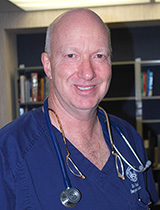Know the signs of dehydration as we face the dog days of summer
Family Health
Athletic trainer offers three tips to prevent dehydration
Let’s face it, Savannah. We have at least two more hot, humid months ahead of us and chances are temperatures will stay on the warmer side until November.
With high temperatures and student athletes returning to the field it is important to understand dehydration risks, signs and prevention.

Dehydration occurs when your body doesn’t have as much water as it needs. Without enough fluid, your body cannot function properly.
Signs and symptoms of dehydration include:
- Thirst
- Cramping
- Dizziness
- Irritability
- Lack of concentration
- Nausea
- Headache
Severe symptoms can include vomiting and diarrhea, and dehydration can lead to heat stroke.
Anyone not getting enough fluids to replace lost fluid can become dehydrated. It is particularly common in adults who are outdoors for long periods of time, student athletes and adults who are on certain medicines, such as diuretics.
Kenneth Tessier, ATC, works under the St. Joseph’s/Candler Sports Medicine program and is head athletic trainer at St. Andrew’s School.
“Dehydration is very common in the average student athlete,” Tessier says. “When athletes engage in sports, they will lose a percentage of body weight through water loss. When their sweat loss exceeds fluid intake athletes become dehydrated during activity.”
Dehydration of one to two percent of body weight can compromise physiologic function and negatively influence performance, Tessier says. Dehydration of three to four percent of body weight further disturbs physiologic function and increases the athlete’s risk of developing heat cramps or heat exhaustion. A loss of five percent or more of body weight can result in heatstroke, Tessier says.
In cases of mild dehydration, rehydration is the best course of treatment. Tessier recommends the following for every athlete following a practice or game, which also can apply to anyone exposed to long periods in the sun:
| Weight Loss During Workout | Fluid Amount Needed to Refuel |
| 2 Pounds | 32 ounces (4 cups of water or 1 32-oz. sports drink) |
| 4 Pounds | 64 oz. (8 cups or 2 sports drinks) |
| 6 Pounds | 96 oz. (12 cups or 3 sports drinks) |
| 8 Pounds | 128 oz. (16 cups or 4 sports drinks) |
Rehydration should aim to correct any fluid loss accumulated during outdoor activities or work, Tessier says.
“Ideally completed within two hours, rehydration should contain water to restore hydration status, carbohydrates to replenish glycogen stores and electrolytes to speed rehydration,” Tessier says.
When to seek medical care

For moderate and severe dehydration cases, intravenous fluids may be needed. Dr. John Rowlett, Director of Pediatric Emergency Medicine for St. Joseph’s/Candler, says anyone who thinks they are dehydrated and is experiencing trouble breathing, persistent cramping, lightheadedness or has cold sweats or suddenly no sweat should call their doctor or come to the emergency department.
Related article: Would you know if you had a concussion?
Water vs. Other Fluids
Water is always going to be your best option for fluid replacement, both Tessier and Dr. Rowlett say. Sports drinks, such as Gatorade and Powerade, can help replace electrolytes lost during sweat.
You want to avoid drinking anything with caffeine, Dr. Rowlett says, because caffeine is a mild diuretic. Adults should never use alcohol as a hydration fluid, he adds.
Prevention
Preparation for practice or a game or a long day outdoors should include hydration, Dr. Rowlett advises.
“If you are going to start your day by working outside all day or playing in an all-day tournament and you haven’t had any fluids to start with, you are setting yourself up for trouble,” Dr. Rowlett says. “Not only do you want to stay hydrated but you want to start hydrated.”
Here are three things Tessier says to remember to try to prevent dehydration:
- Drink 16 to 24 oz. of fluid one to two hours before the workout or competition.
- Drink 8 to 10 oz. of water of sports drink during every 20 minutes of exercise.
- Drink before you feel thirsty. When you feel thirsty, you have already lost needed fluid.
“Savannah is very hot during the summer months and even through October or November,” Tessier says. “Understanding the signs and symptoms of dehydration and having a proper protocol for athletes will help everyone in decreasing dehydration and heat illnesses.”
To learn more about Sports Medicine at St. Joseph’s/Candler, click here.